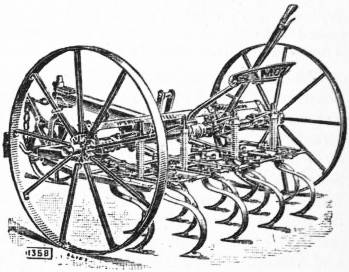Culross (locally pronounced Coo-rus), a royal and police burgh, Fifeshire, Scotland, 6½ m. W. by S. of Dunfermline and 2½ m. from East Grange station on the North British railway company’s line from Dunfermline to Stirling. Pop. 348. Until 1890 it belonged to the detached portion of Perthshire. Attractively situated on a hillside sloping gently to the Forth, its placid old-world aspect is in keeping with its great antiquity. Here St Serf carried on his missionary labours, and founded a church and cemetery, and here he died and was buried. For centuries the townsfolk used to celebrate his day (July 1st) by walking in procession bearing green boughs. Kentigern, the apostle to Cumbria and first bishop of Glasgow, was born at Culross, his mother having been driven ashore during a tempest, and was adopted by St Serf as his son. These religious associations, coupled with the fertility of the soil, led to the founding of a Cistercian abbey in 1217. Of this structure the only remains are the western tower and the choir, which, greatly altered as well as repaired early in the 19th century, now forms the parish church. It is supposed that a chapel of which some traces exist in the east end of the town was dedicated to Kentigern. James VI. made Culross a royal burgh in 1588. In 1808 there was discovered in the abbey church, embalmed in a silver casket, still preserved there, bearing his name and arms, the heart of Edward, Lord Bruce of Kinloss, who was killed in August 1613 near Bergen-op-Zoom in a duel with Sir Edward Sackville, afterwards earl of Dorset. Robert Pont (1524-1606), the Reformer, was born at Shirresmiln, or Shiresmill, a hamlet in Culross parish. Nearly all its old industries—the coal mines, salt works, linen manufacture, and even the making of iron girdles for the baking of scones—have dwindled, but its pleasant climate and picturesqueness make it a holiday resort. Dunimarle Castle, a handsome structure on the sea-shore, adjoins the site of the castle where, according to tradition, Macbeth slew the wife and children of Macduff. Culross belongs to the Stirling district group of parliamentary burghs.
 |
| Ransome’s Spring Tine Cultivator. |


